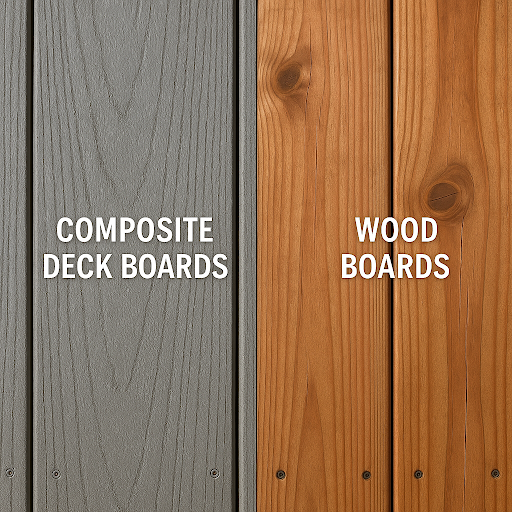5 Questions Homeowners Ask About Deck Building
- Simcoe Decks

- Apr 23, 2020
- 3 min read
Updated: Jun 24, 2025

Ready for a new season of deck building and renovations? Contractors doing their homework and learning about innovative decking products will have a competitive advantage when answering client questions and providing the best advice on custom deck installation projects. Mike Scott, founder of Simcoe Decks, a trusted deck builder in Simcoe, and a Deckorators Certified Pro, shares the most commonly asked questions he gets from homeowners across Ontario.
1. Do composite deck boards expand and contract?
This question comes up often, especially in Ontario’s changing weather. With the extremes of hot summers and cold winters, homeowners often ask how decking materials perform in fluctuating temperatures.
The expansion and contraction of deck boards depend on the composition of the board. Synthetic products like PVC and composite decking respond differently to temperature shifts. A premium composite decking product like Deckorators Voyage features Eovations™ technology, a polypropylene and mineral blend that ensures deck boards remain strong, lightweight, and dimensionally stable, with virtually no thermal expansion or contraction. This makes it ideal for the unpredictable Canadian climate.
2. What are the differences between PVC decks and wood plastic composite (WPC) decks?
Understanding the differences between PVC decking and composite decking in Ontario is key to guiding homeowners through the decision-making process.
PVC deck boards are made entirely from polyvinyl chloride, offering a lightweight, easy-to-clean, and low-maintenance decking option. These boards don’t require staining, sanding, or painting, making them ideal for clients seeking simplicity.
WPC, or wood-plastic composite decking, is made from a blend of synthetic materials and wood fibers. These boards replicate the look of natural wood while offering superior durability, moisture resistance, and fade protection. For smoother installation, look for brands that offer hidden fasteners and slotted-edge boards. This eliminates the need for predrilling and helps reduce labor time on the job site.

3. I’ve heard composite decks are slippery. Is that true?
One of the most common misconceptions is that composite decking is slippery. While some brands may lack grip, others are specifically designed for high-traction applications, such as pool decks and docks.
Products like Deckorators Voyage decking are engineered with textured embossing to enhance slip resistance, even in wet conditions. Voyage provides 34 percent or greater surface traction than other leading composite brands, which makes it a smart choice for safe outdoor living spaces.
4. How do I maintain my composite deck?
Clients love that composite decks are low maintenance. Unlike wood decks, composite boards don’t require frequent staining or sealing. Maintenance is simple. Sweep regularly to remove debris and wash with a garden hose to reduce mold and staining, especially before winter.
To ensure your clients are protected long-term, recommend composite decking brands that offer strong warranties. For example, Deckorators provides a 25-year structural, 25-year stain and fade, and 25-year removal and replacement warranty on most of their boards. This gives homeowners peace of mind for years to come.
5. Are permits required for a deck build or project?
Permit requirements depend on the scope of the build. For new deck construction, especially elevated decks or docks, a building permit is typically required. However, if you are simply replacing existing deck boards, a permit may not be necessary.
Since requirements vary by location, it is important to check with your local municipality. As a professional deck builder in Simcoe and surrounding areas, staying informed about local bylaws ensures your projects are compliant and stress-free.
Final Thoughts
Building a deck is a major investment in your outdoor space, and choosing the right materials and contractor makes all the difference. Whether you’re comparing PVC and composite decking, wondering about permit requirements, or looking for expert guidance on your build, the team at Simcoe Decks is here to help.
Explore more about who we are, or browse our recent Projects to see what we’ve built. If you're just starting to plan your outdoor space, visit our Services or reach out directly through our Contact page to start the conversation.



Comments